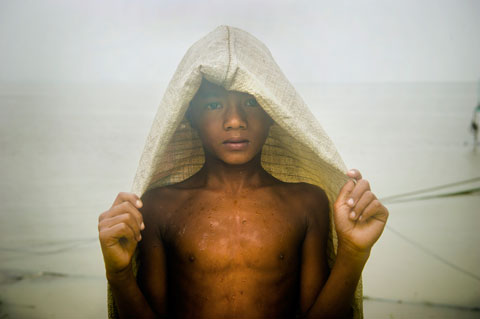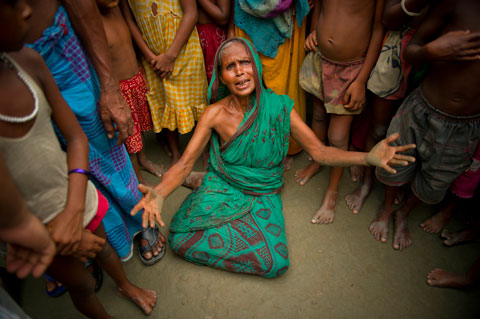About The Film


Scientists are predicting that climate change could lead to a rise in sea levels that would flood at least 17 percent of Bangladesh and create around 20-35 million refugees by 2050. Around the world, experts concur Bangladesh is on the frontlines of climate change and the country faces a double threat: rising sea levels as a result of the melting ice caps and glaciers, and as the world warms, more extreme weather patterns. They say the monsoon rains in the region are concentrating into a shorter period, causing a cruel combination of more extreme floods and longer periods of drought.
In the capital of Dhaka, the impact is already being felt, with some half a million migrants arriving in the city each year. 40,000 people live on one square kilometer here, making it one of the most densely populated places on the planet. These "climate change refugees" are pouring mostly into squalid slums and the biggest reason for moving is environmental degradation. Alam Mia is like millions of others who have been forced to make the gridlocked capital of Dhaka his home. We follow his journey as he leaves his family and familiarity of home to search for a livelihood in the crowded capital. To him, Dhaka feels more like a foreign country than his native lands. To his family at home, it is a struggle to survive. The irony is that Alam Mia, like millions like him in Dhaka, is trapped. His move to the city is not a beginning full of possibilities for the future. Korial – Dhaka's largest slum signifies the bitter culmination of his dreams. There is no path ahead.
The situation is at once ironic and unjust. The poorest are the most affected by climate change but they are the least responsible for it. With more informed choices we can alter, not only the fate of Bangladesh, but the whole planet. The country's future, however, and the fate of its impoverished millions, will be determined not necessarily by rising sea levels, but by the behavior of its citizens, neighbors and outside powers. Whether it becomes one of the great human tragedies of our time or a model for the future depends on these choices; what happens next is in our hands. Right now Bangladesh appears far away, but our planet's ecosystem is an intricate web and the lessons learned here, are important for all of humanity.
